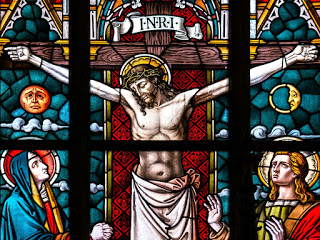
This book has over one thousand pages and is comprised of around 20 to 30 chapters which are given titles that are, in themselves, their own summaries. In all honesty, this book is a lot to read and it takes no less than the devotion and perseverance of a saint to finish the book.
The book is divided into two major parts. The first part strongly defends Christianity against accusations during Roman rule. As we all know, Christians then were persecuted because they did not worship the Roman Gods and this growing religion was seen more of a cult than a real religion.
In fact, the book even claims that the Romans blamed the Christians for the sacking of Rome by the Goths because of their lack of faith in the Roman Gods.
Of course, you would expect the book’s author to refute these accusations. The book raises a compelling counter-argument by citing the slew of atrocities and calamities that have happened to the Roman empire even before the introduction of Christianity into their society.
The book also goes on to discuss other aspects of Roman religion that Saint Augustine found to be inconsistent and self-contradictory. The aspects of which he spoke of were on how the Romans strongly believed (and relied) on astrology and the Romans gods which had all sorts of inconsistencies. (no spoilers here)
The book also contains what is quintessentially a book review of the work of Marcus Varro, who is known to be Rome’s greatest scholar. Saint Augustine masterfully points out that while he recognizes and respects the intellect that Varro possesses, he still pokes fun at how there is a Roman God for so many aspects of life, some of which are, according to Saint Augustine, borderline ridiculous.
The book, like many of the works of Saint Augustine, is a massive collection of observations and wisdom from the saint. 500 words cannot adequately describe this book and the enormity and depth of the topics discussed within.
It wasn’t a euphemism when I stated that you’d need the perseverance of a saint to read the book all the way to the end. But, much like how the saints are rewarded for keeping the faith and staying true to their beliefs, the book does leave readers with a wonderfully-written chapter that gives a profound emphasis on eternal life.
The book is filled with bits of wisdom and insights. What truly makes this book shine is that the way it was written shows that Saint Augustine was a profound thinker and that he understood history, pagan beliefs, and the philosophies of his time, and he took great care in sharing his insights on these things.
To summarize this review, The City of God is a well-researched and a very logical piece of work that embodies the Christian response to a world with diverse views and beliefs. It’s lengthy, it’s intelligently written, and it’s filled with obscurities, strangeness, and most of all, a fascinating perspective of what it was like to be a Christian during Roman rule.


